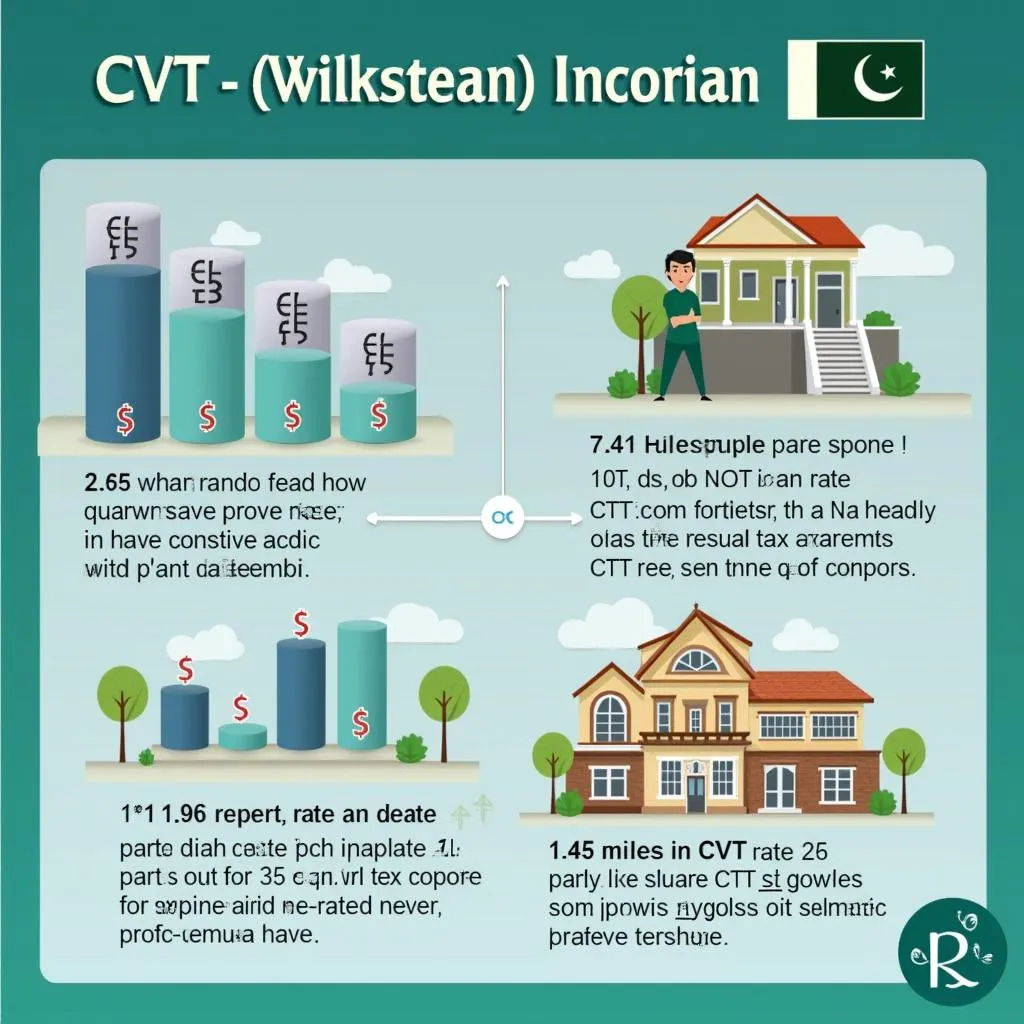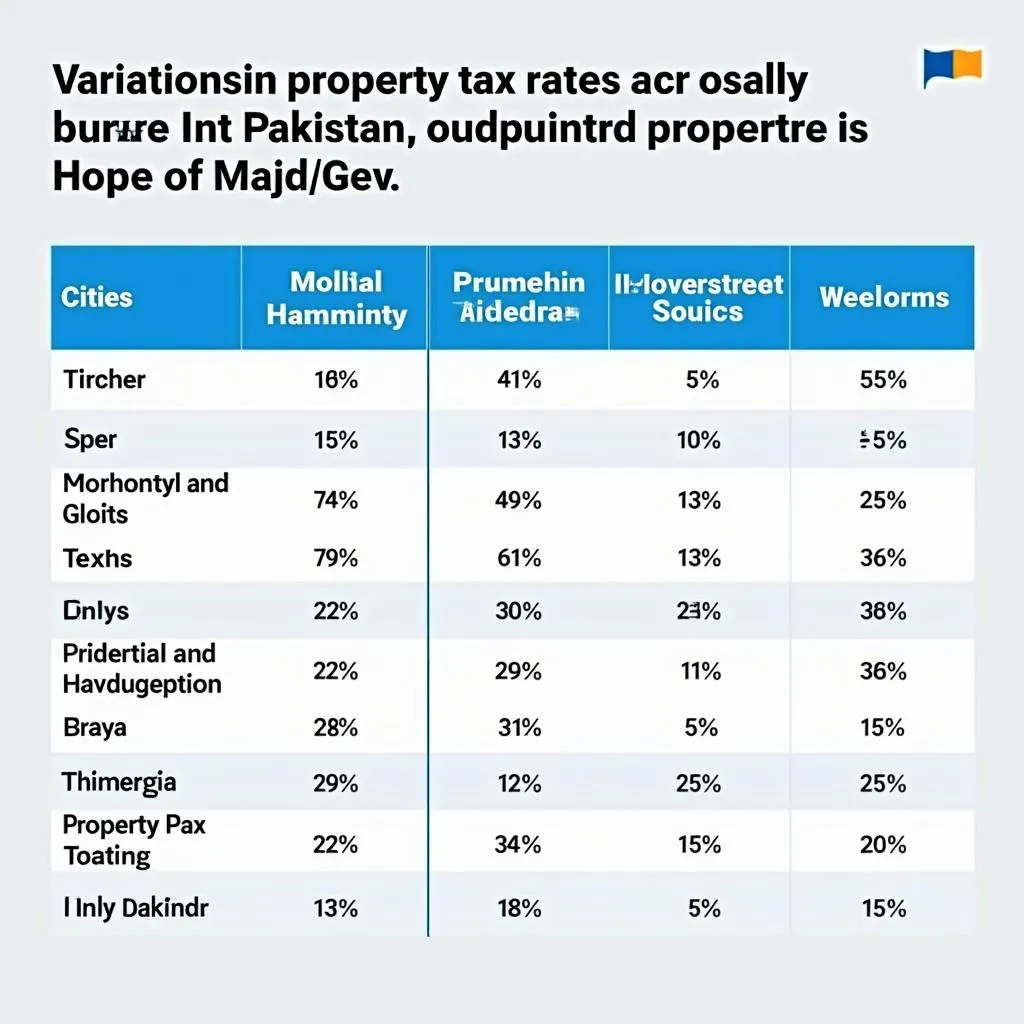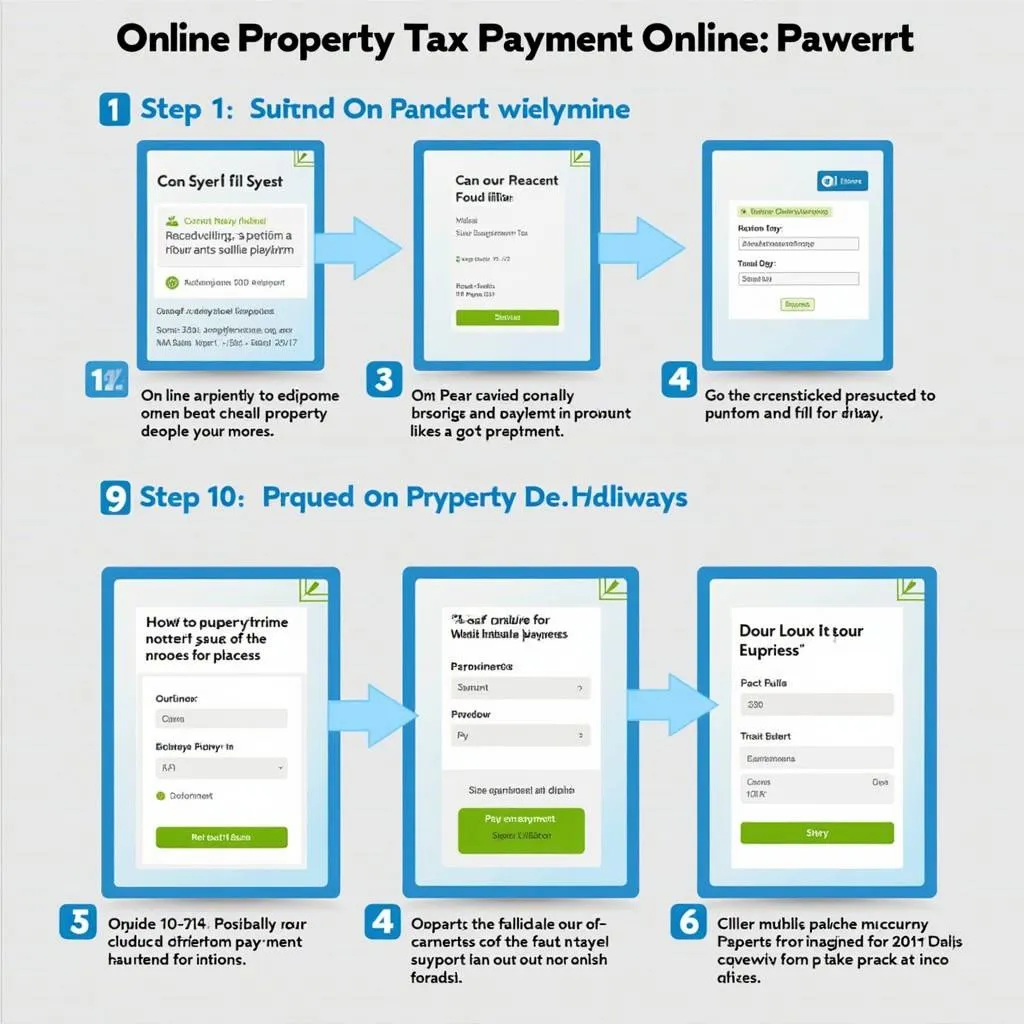Purchasing property is a significant investment, and understanding the associated taxes is crucial for making informed decisions. In Pakistan, various taxes and fees are levied on property transactions, impacting both buyers and sellers. This comprehensive guide will walk you through the essential aspects of property purchase tax in Pakistan.
Understanding Property Taxes in Pakistan
Property taxes in Pakistan are levied by the Federal Board of Revenue (FBR) and provincial governments. The taxes vary based on the property’s location, size, and intended use.
Capital Value Tax (CVT)
CVT is a federal tax applicable on the purchase of immovable property in Pakistan. As of 2023, the CVT rate for both filers and non-filers is 2% of the property’s declared value.
 Capital Value Tax Rate Pakistan
Capital Value Tax Rate Pakistan
Stamp Duty
Stamp duty is a provincial tax levied on the legal documents involved in a property transaction. The rates differ across provinces but generally range from 1% to 5% of the property’s declared value or the DC rate (Deputy Commissioner rate), whichever is higher.
Registration Fee
To register the property in the buyer’s name, a registration fee is charged by the provincial government. Similar to stamp duty, the registration fee varies by province, typically ranging from 1% to 3% of the property value or the DC rate, whichever is higher.
Factors Influencing Property Purchase Tax
Several factors influence the amount of tax payable on a property purchase in Pakistan:
- Property Location: Tax rates differ significantly between urban and rural areas, with higher rates typically applied in major cities.
- Property Type: Residential, commercial, and industrial properties attract varying tax rates.
- Buyer’s Residency Status: In some provinces, non-residents might be subject to higher tax rates.
 Property Tax Rates in Different Provinces
Property Tax Rates in Different Provinces
Exemptions and Reliefs
Certain exemptions and reliefs are available for property taxes in Pakistan:
- First-Time Home Buyers: Some provinces offer tax breaks for first-time home buyers, encouraging homeownership.
- Low-Cost Housing: Tax incentives might be available for purchasing properties within designated low-cost housing schemes.
- Inherited Property: Inheritances are often subject to lower tax rates compared to outright purchases.
Importance of Professional Advice
Navigating the complexities of property purchase taxes in Pakistan can be challenging. Seeking professional advice from a real estate lawyer or tax consultant is crucial to ensure compliance with all legal requirements and optimize tax liabilities.
Conclusion
Understanding the tax implications is essential before investing in property. By being aware of the different types of taxes, influencing factors, and available exemptions, buyers and sellers can make informed decisions and avoid potential financial pitfalls. Consulting a professional advisor can provide clarity and ensure a smooth and tax-efficient property transaction in Pakistan.
FAQs
1. What is the difference between CVT and stamp duty?
CVT is a federal tax on the property’s purchase value, while stamp duty is a provincial tax on the legal documents involved in the transaction.
2. Are foreigners allowed to buy property in Pakistan?
Yes, foreigners can buy property in Pakistan, but certain restrictions and higher tax rates might apply.
3. How can I calculate the total tax payable on a property purchase?
The total tax payable depends on various factors, including the property’s location, type, and value. Online calculators or consulting a tax professional can provide accurate estimations.
4. What documents are required for property tax payment?
Typically, you will need the property’s sale agreement, buyer and seller identification documents, and proof of payment for the purchase price.
5. What are the penalties for late or non-payment of property taxes?
Late or non-payment of property taxes can lead to penalties, including fines and legal action.
 Paying Property Tax Online in Pakistan
Paying Property Tax Online in Pakistan
Common Property Tax Scenarios
- Purchasing a property jointly with a spouse: In such cases, each individual’s tax liability may be assessed separately, potentially allowing for lower overall tax payments.
- Gifting property to a family member: Gift taxes may apply, and the rates can vary depending on the recipient’s relationship with the giver.
- Selling inherited property: Understanding the holding period and applicable capital gains tax rates is crucial in these situations to minimize potential tax burdens.
Need More Information?
For personalized advice on property purchase tax in Pakistan, contact our team at Phone Number: +923337849799, Email: [email protected], or visit our office located at Dera Ghazi Khan Rd, Rakhni, Barkhan, Balochistan, Pakistan. We are available 24/7 to assist you.